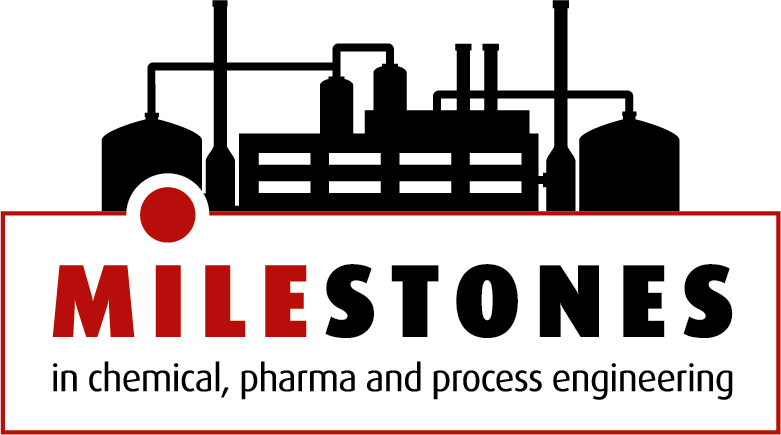:quality(80)/images.vogel.de/vogelonline/bdb/1792000/1792073/original.jpg)
Industry Update Nova Revises its Technology and Trend Report
Nova has completely revised and introduced an extended third version of its nova’s technology and trend report ‘Carbon Dioxide (CO2) as Chemical Feedstock for Polymers – Technologies, Polymers, Developers and Producers’. The report states that CO2 is used as chemical feedstock for polymers and nearly 1 million tons production capacity has already been installed.
Related Company

Germany – The nova report addresses the polymer industry, brands, technology scouts, investors, and policy makers. The report provides 100 pages of information around CO2 utilization for chemical building blocks and polymers.
400 million tons of polymers are produced globally each year. The amount has been growing by 3 – 4 % per year for decades and they have become an integral and important part of the modern world. Despite all their useful and versatile material properties, polymers face a major problem: 90 % of them are produced from fossil carbon and finally end up as CO2 emission. This has no future!
The organic chemistry and plastics sectors cannot be decarbonized, simply because carbon is the main atom in their material structures. In this context, renewable alternatives to fossil feedstocks are needed, which have already been available for a long time, thanks to intensive research. Chemicals and polymers are already being produced today using renewable carbon, which is carbon from biomass and recycling – and also from CO2. However, as the use of biomass and the recycling of plastics alone will not suffice, CO2 utilization could be the solution to meet the demand of virgin polymers in the future (Carus et al. 2020).
nova-Institutes technology and trend report ‘Carbon Dioxide (CO2) as Chemical Feedstock for Polymers – Technologies, Polymers, Developers and Producers’ examines this alternative, renewable carbon source in detail: which polymers can be produced from CO2, and by which processes? How far have the technologies already been developed, optimized and implemented in pilot, demonstration and (semi) commercial plants? Which companies and institutes are working on technologies to produce polymers or building blocks from CO2?
Production Capacities for CO2-based Polymers
As nova-Institute shows in its report, the potential and the actual production capacity for CO2-based polymers is much larger than commonly assumed and discussed. The production capacity, mainly for polycarbonates and polyols for polyurethanes production, already amounts to more than 850 kt/a today, with an average weighted CO2-based carbon content of currently only 5.4 %. Nine companies were considered, mainly located in Asia, Europe and North America.
However, many technical challenges still need to be overcome to enable the deployment of new CO2-conversion plants on a widespread basis, but the use of CO2 as a chemical feedstock for polymers has been intensively diversified in the last years. By now, there are several successfully implemented technologies on the market or close to the commercialization phase. The third version of the nova-Institutes Technology and Trend Report spans 100 pages and gives a comprehensive overview of the different production routes of CO2-based polymers that are developed and commercialized by research groups of industrial key players, start-ups and institutes. A total of at least 40 companies and research projects from Asia, Europe and North America are working on CO2-based polymers and are presented in this report.
(ID:47107663)




:quality(80)/images.vogel.de/vogelonline/bdb/1791500/1791582/original.jpg)
:quality(80)/images.vogel.de/vogelonline/bdb/1791200/1791242/original.jpg)
:quality(80)/images.vogel.de/vogelonline/bdb/1791100/1791165/original.jpg)
:quality(80)/images.vogel.de/vogelonline/bdb/1792000/1792068/original.jpg)
:quality(80)/images.vogel.de/vogelonline/bdb/1791500/1791591/original.jpg)
:quality(80)/images.vogel.de/vogelonline/bdb/1791500/1791590/original.jpg)
:quality(80)/images.vogel.de/vogelonline/bdb/1791500/1791580/original.jpg)
:quality(80)/images.vogel.de/vogelonline/bdb/1784300/1784372/original.jpg)
:quality(80)/images.vogel.de/vogelonline/bdb/1755500/1755515/original.jpg)
:quality(80)/images.vogel.de/vogelonline/bdb/1750100/1750119/original.jpg)
:quality(80)/images.vogel.de/vogelonline/bdb/1744100/1744189/original.jpg)
:quality(80)/images.vogel.de/vogelonline/bdb/1791600/1791666/original.jpg)
:quality(80)/images.vogel.de/vogelonline/bdb/1791200/1791238/original.jpg)
:quality(80)/images.vogel.de/vogelonline/bdb/1788400/1788469/original.jpg)
:quality(80)/images.vogel.de/vogelonline/bdb/1785900/1785988/original.jpg)
:quality(80)/images.vogel.de/vogelonline/bdb/1790500/1790551/original.jpg)
:quality(80)/images.vogel.de/vogelonline/bdb/1781300/1781356/original.jpg)
:quality(80)/images.vogel.de/vogelonline/bdb/1779700/1779733/original.jpg)
:quality(80)/images.vogel.de/vogelonline/bdb/1775200/1775249/original.jpg)
:quality(80)/images.vogel.de/vogelonline/bdb/1792000/1792072/original.jpg)
:quality(80)/images.vogel.de/vogelonline/bdb/1792000/1792017/original.jpg)
:quality(80)/images.vogel.de/vogelonline/bdb/1792000/1792062/original.jpg)
:quality(80)/images.vogel.de/vogelonline/bdb/1788100/1788142/original.jpg)
:quality(80)/images.vogel.de/vogelonline/bdb/1769000/1769071/original.jpg)
:quality(80)/images.vogel.de/vogelonline/bdb/1750700/1750774/original.jpg)
:fill(fff,0)/p7i.vogel.de/companies/5f/98/5f98fbb2e7bf2/05-trm-filter-logo-with-slogan-en-alt.png)
:quality(80)/images.vogel.de/vogelonline/bdb/1742200/1742245/original.jpg)
:quality(80)/images.vogel.de/vogelonline/bdb/1791600/1791604/original.jpg)